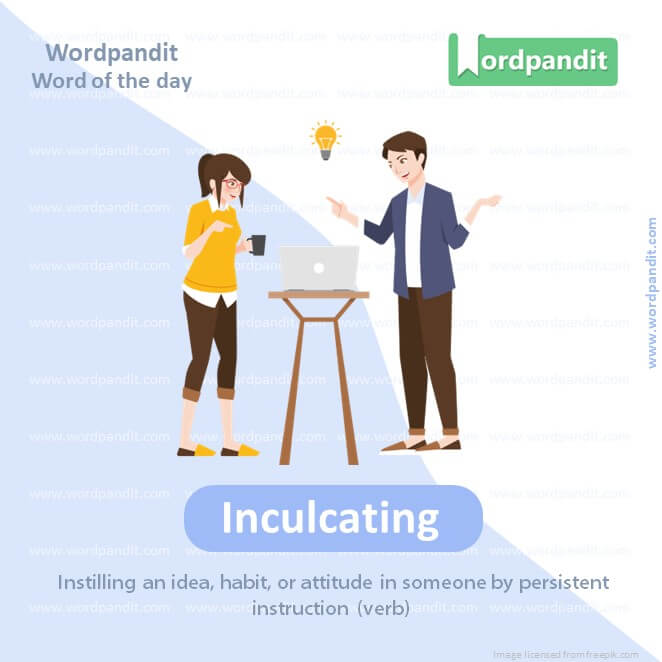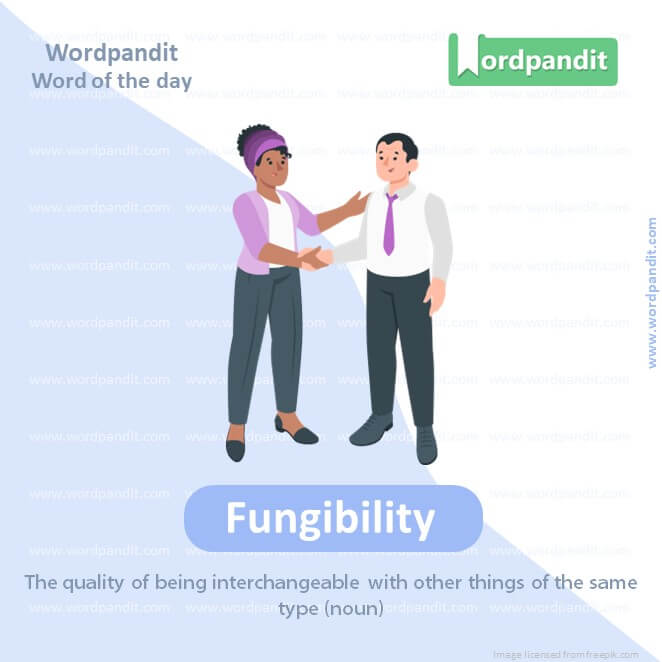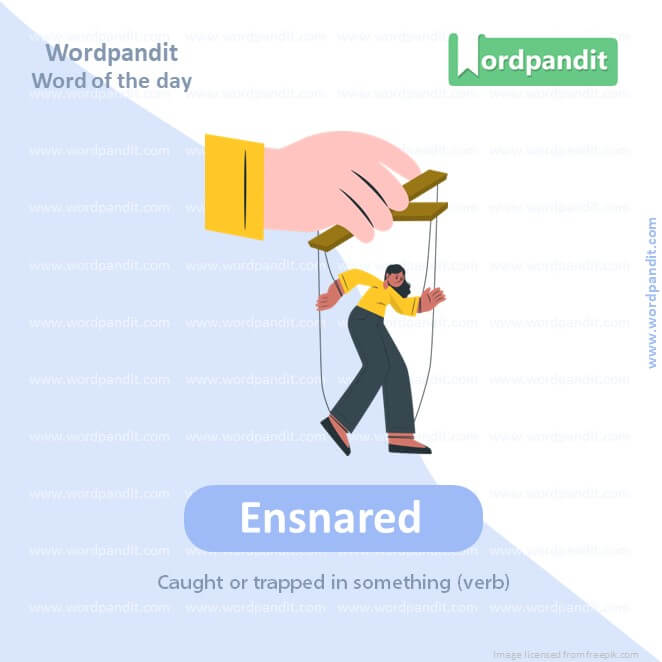Daily Vocabulary Words: List of Daily Used Words in Leading Indian Newspapers
Hi there. Welcome to this special section @ Wordpandit. Our endeavour here is straightforward: highlighting daily vocabulary words that you would come across in leading newspapers in the country. We have included the following newspapers in our selection:
• The Times of India
• The Economic Times
• Hindustan Times
• Mint
• Indian Express
We are putting in extensive work to develop your vocabulary. All you have to do is be regular with this section and check out this post daily. This is your repository of commonly used words; essentially, we are posting a list of daily used words. Hence, this has significant practical application as it teaches you words that are commonly used in leading publications mentioned above.
Visit the website daily to learn words from leading Indian newspapers.

WORD-1: Lamented
CONTEXT: he lamented the lack of progress in achieving this transparency over seven decades.
SOURCE: Times of india
EXPLANATORY PARAGRAPH: Imagine you had a favorite toy and one day it got lost or broken. You’d feel sad and miss it, right? That’s what “lamented” means. It means to feel sad or to express sorrow about something that’s gone or lost.
MEANING: Felt or expressed sorrow or regret for (verb).
PRONUNCIATION: la-MEN-ted
SYNONYMS: Mourned, Grieved, Bemoaned, Regretted, Cried over, Wept for, Sorrowed
USAGE EXAMPLES:
1. She lamented the loss of her childhood memories.
2. The whole village lamented the passing of the old chief.
3. I lamented the fact that I never got to say goodbye to my friend.
4. The poet lamented the destruction of nature in his poems.

WORD-2: Inculcating
CONTEXT: A sense of ownership and commitment to one’s country is indeed a sentiment worth inculcating in our young and old alike.
SOURCE: Hindustan times
EXPLANATORY PARAGRAPH: You know how sometimes your parents or teachers repeat the same thing many times so you can remember it? Like, “Always say please and thank you”. They’re trying to put that idea deep in your mind. That’s what “inculcating” means. It’s like planting a seed of an idea in someone’s mind and making it grow by repeating it.
MEANING: Instilling an idea, habit, or attitude in someone by persistent instruction (verb).
PRONUNCIATION: in-KUL-kay-ting
SYNONYMS: Instilling, Implanting, Embedding, Infusing, Drilling, Teaching, Indoctrinating
USAGE EXAMPLES:
1. The school focuses on inculcating good values in students.
2. The coach was inculcating discipline and teamwork in the players.
3. Parents play a crucial role in inculcating a love for reading in children.
4. The seminar aimed at inculcating leadership skills among the participants.

WORD-3: Fungibility
CONTEXT: the defining characteristics of tech platform-driven gig economy jobs are their fungibility and repeatability but also atomisation which makes it impossible for anyone performing these roles to gain larger responsibility
SOURCE: Indian express
EXPLANATORY PARAGRAPH: Imagine you have two red toy cars. If you swap one car for another, you still have a red toy car, right? That’s because they’re the same and can be replaced by one another. “Fungibility” is a big word that means something can be replaced by another thing that’s just like it.
MEANING: The quality of being interchangeable with other things of the same type (noun).
PRONUNCIATION: fun-juh-BIL-i-tee
SYNONYMS: Interchangeability, Replaceability, Substitutability, Swappability, Convertibility, Exchangeability, Equivalence
USAGE EXAMPLES:
1. Money has fungibility because one $10 bill is the same as another $10 bill.
2. The fungibility of the tokens in the game made trading easy.
3. Because of the product’s fungibility, customers had a lot of choices.
4. Gold is often prized for its fungibility and universal acceptance.
WORD-4: Tangible
CONTEXT: The onus is thus on those of us with power and platform to first make a tangible effort to create that sense of shared belonging and ensure equitable growth before we exhort our young to work harder in the name of nation-building.
SOURCE: Hindustan times
EXPLANATORY PARAGRAPH: You know how you can touch your toy and feel it? That’s because it’s real and you can touch it with your hands. “Tangible” is a word that means something is real and can be touched.
MEANING: Able to be touched or felt; real or concrete (adjective).
PRONUNCIATION: TAN-juh-bul
SYNONYMS: Touchable, Physical, Palpable, Real, Solid, Material, Corporeal
USAGE EXAMPLES:
1. The excitement in the room was almost tangible.
2. They needed tangible proof to believe the story.
3. The benefits of the new policy were tangible and could be seen immediately.
4. She kept a tangible reminder of her grandmother by wearing her necklace.
WORD-5: Unequivocally
CONTEXT: unequivocally reject and condemn the terrorist attacks by Hamas that took place in Israel starting on 7 October 2023 and the taking of hostages”.
SOURCE: Hindustan times
EXPLANATORY PARAGRAPH: When you say “YES!” really loudly and clearly without any doubt, you’re very sure about what you’re saying. “Unequivocally” is a fancy way to say “clearly and without any doubt”.
MEANING: In a way that leaves no doubt; clearly (adverb).
PRONUNCIATION: un-eh-kwiv-oh-ka-lee
SYNONYMS: Clearly, Definitely, Unmistakably, Indisputably, Undeniably, Unambiguously, Unquestionably
USAGE EXAMPLES:
1. She unequivocally denied the accusations.
2. The results were unequivocally in favor of the new proposal.
3. He stated unequivocally that he would not change his decision.
4. The evidence unequivocally pointed to the suspect’s guilt.
WORD-6: Spoilsport
CONTEXT: Rajneesh Aggarwal dismisses fears of the drought playing spoilsport for the party.
SOURCE: Indian express
EXPLANATORY PARAGRAPH: Imagine you’re playing a fun game, and someone comes and stops the game or ruins the fun. That person is like a rain cloud on a sunny day. “Spoilsport” is a word for someone who ruins other people’s fun.
MEANING: A person who ruins other people’s enjoyment by failing to join in or by stopping the activity (noun).
PRONUNCIATION: SPOYL-sport
SYNONYMS: Killjoy, Wet blanket, Party pooper, Buzzkill, Fun-sucker, Debbie Downer, Fun-killer
USAGE EXAMPLES:
1. Don’t be a spoilsport; join us in the dance!
2. Whenever we plan a prank, Tim acts like a spoilsport and tells the teacher.
3. No spoilsports allowed at the party tonight!
4. Just because she didn’t want to play, she shouldn’t be a spoilsport for everyone else.

WORD-7: Ensnared
CONTEXT: the case of Israel, perennially ensnared in an asymmetric battle with entities like Hamas – a group that calls for nothing less than the annihilation of the Jewish state and all Jews.
SOURCE: Indian express
EXPLANATORY PARAGRAPH: You know how in some stories, animals get caught in traps? Like a net that catches them? “Ensnared” is a word that means to get caught or trapped in something, not always a real net, but sometimes in a tricky situation.
MEANING: Caught or trapped in something (verb).
PRONUNCIATION: en-SNAYRD
SYNONYMS: Trapped, Entangled, Captured, Snared, Entrapped, Caught, Tangled
USAGE EXAMPLES:
1. The rabbit was ensnared in the hunter’s trap.
2. He became ensnared in a web of lies.
3. The fish was ensnared in the fisherman’s net.
4. Many get ensnared by the allure of easy money.

WORD-8: Venerated
CONTEXT: all our holier-than-thou airs, about Gandhian ahimsa, our most venerated text.
SOURCE: Indian express
EXPLANATORY PARAGRAPH: You know how you might have a favorite superhero and you think they’re the best? You respect and admire them a lot! “Venerated” is a word that means to really respect and admire someone or something.
MEANING: Regarded with great respect and admiration (verb).
PRONUNCIATION: VEN-er-ay-ted
SYNONYMS: Revered, Admired, Honored, Respected, Worshipped, Esteemed, Glorified
USAGE EXAMPLES:
1. In many cultures, elders are venerated for their wisdom.
2. The ancient artifact was venerated by the tribe.
3. He is a venerated figure in the world of science.
4. The monument was built to honor the venerated leader of the nation.
WORD-9: Subterfuge
CONTEXT: At the heart of the great tale that valorises martial feats of skill and subterfuge.
SOURCE: Times of india
EXPLANATORY PARAGRAPH: Let’s say you’re playing hide and seek, and you pretend to go one way but then hide somewhere else to trick the seeker. That little trick you did? That’s like a “subterfuge”. It’s when someone does something sneaky or tricky to hide the truth or to deceive.
MEANING: A trick or strategy used to hide something or to deceive (noun).
PRONUNCIATION: SUB-ter-fyooj
SYNONYMS: Trickery, Deception, Ploy, Ruse, Scheme, Dodge, Feint
USAGE EXAMPLES:
1. The spy used subterfuge to get past the guards.
2. Their plan involved a clever subterfuge to fool the enemy.
3. He used a simple subterfuge to avoid answering the question.
4. Behind her smile was a subterfuge meant to deceive everyone.
WORD-10: Succinctly
CONTEXT: a statesman and strategist in China’s Han Dynasty, succinctly summed it up.
SOURCE: Times of india
EXPLANATORY PARAGRAPH: Imagine you have a big box of crayons, but instead of using all of them, you only use a few to make a beautiful picture. “Succinctly” is like that. It means saying something using only a few words but still making it clear.
MEANING: In a clear and brief manner (adverb).
PRONUNCIATION: suh-KINKT-ly
SYNONYMS: Briefly, Concisely, Terse, Short, Compact, To the point, Crisply
USAGE EXAMPLES:
1. She explained the situation succinctly to everyone.
2. The instructions should be written succinctly and clearly.
3. He succinctly summarized the main points of the meeting.
4. The teacher asked for a succinct answer, not a long story.
vocabulary kit
The gift of language lies not just in the syntax or grammar but majorly thrives on a rich repository of words- the vocabulary. Hence, the importance of vocabulary learning techniques is monumental in language acquisition. These techniques act as catalysts, accelerating the process of language learning, and seamlessly integrating new words into our daily discourse.
The first vital point in mastering vocabulary learning techniques is understanding its purpose. These strategies not just help one in memorizing an array of new words, but also assist in using them appropriately in different contexts. It broadens communication skills and creates a roadmap to better expression of thoughts and ideas.
One of the most commonly employed and impactful vocabulary learning techniques is the usage of flashcards. Flashcards offer visual stimulus which aids in imprinting the word and its meaning more effectively in our minds. Regular practice with flashcards helps cultivate language fluency over time.
Another crucial technique is to learn words in context. This simply means learning a word by associating it with a particular sentence, paragraph or story. This context-based approach remarkably boosts our understanding of the nuanced use of vocabulary in varying scenarios.
Moreover, incorporating digital tools or language learning apps can be an effective method in our vocabulary learning techniques kit. These platforms provide interactive learning experiences with gamified vocabulary exercises, making the learning process greatly enjoyable and engaging.
Finally, regular revision is a cornerstone of these vocabulary learning techniques. Repeated revisions ensure that the learned words do not slip away and rather, become firmly anchored in our memory.
Indeed, vocabulary learning techniques are much more than mere memorization strategies. They nurture linguistic competence, expanding expressive capabilities and fostering effective communication. Hence, investing time in understanding and practicing these vocabulary learning techniques can pay rich dividends in enhancing one’s language proficiency.













